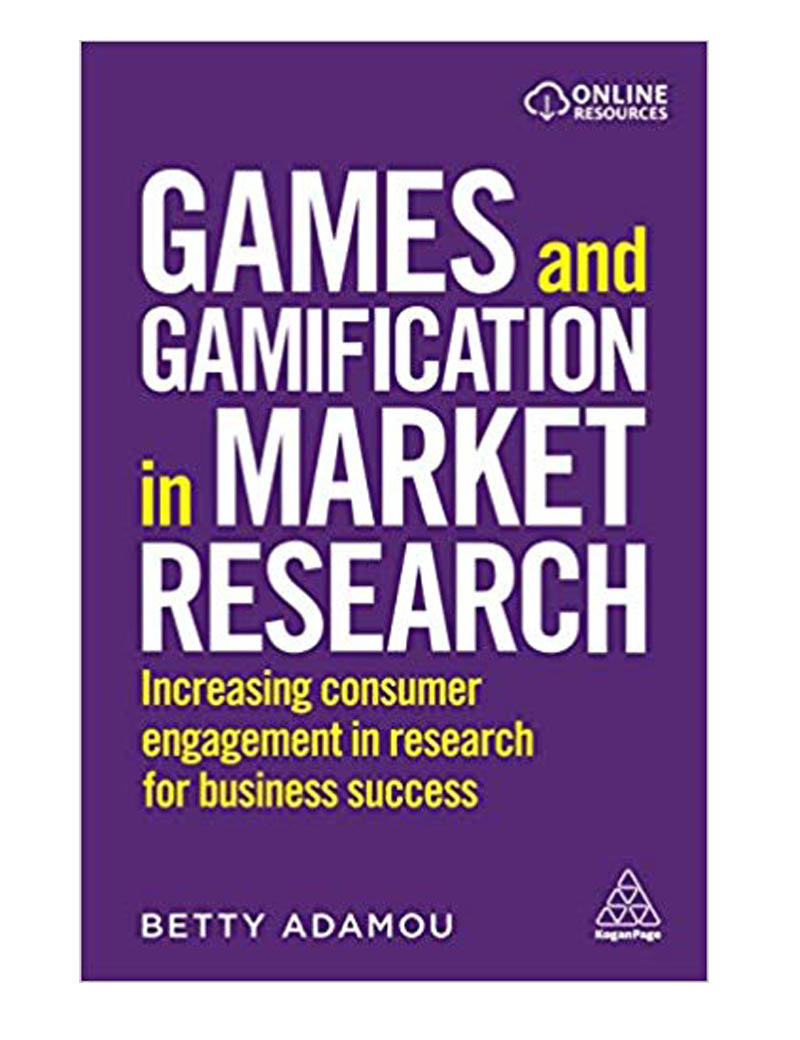Reviewed by Susan Fader, susanfader@faderfocus.com
Fader & Associates, Teaneck, NJ
A major challenge facing the market research industry is the decreasing levels of respondent engagement, so it is not surprising that integrating gamification into market research design is an approach that is seen, by some, as a possible panacea.
Gamification is the process of applying the elements that make game playing appealing to everyday tasks so as to encourage more active participation. As Jon Puleston, a founding father of gamification in the world of quantitative research explained, “If I asked you to carry a 10-pound bag for five miles, you would probably expect payment. However, if I give you a stick and a challenge to hit a ball with it along the route in the minimum number of touches, it has been transformed into a game called golf, which people pay to do.”
In our everyday, non-research lives we can play games in multiple forms. You could be hooked on a video game or that game on your mobile, Family Night board games could be a big thing in your house, or that Escape Room challenge is something you are doing with friends.
But for some, gamification can also be choosing the fun or reward elements of game playing. Using this definition, gamification impacts how we make choices in our everyday life, even when we might not be playing an actual game. Think of that free cup of joe you got because you filled up your coffee shop’s loyalty card, or you used one credit card over another because one is offering you triple points, or continuing to stay at one hotel chain—even if you would prefer staying somewhere else—because you just need one more stay to get a free weekend.
However, Betty Adamou, author of Games and Gamification in Market Research: Increasing Consumer Engagement in Research for Business Success, is a purist when it comes to gamification. She feels that you need to have true game play to reap the benefits of gamification and thus cautions that cherry-picking gamification elements does not translate into true gamifying of research. “Surveys worded to sound like more fun is not gamification.”
Adamou has very strong street cred in the world of market research gamification. She is the CEO of Research Through Gaming, which has created research games for a multitude of Fortune 500 companies. Based in the UK, she has won multiple research awards both in the UK and US for her innovative thinking when it comes to market research.
In Games and Gamification in Market Research, Adamou provides an in-depth discussion of what gamification is, when you should use it, and how you should design a gamification study. She provides many detailed case study examples of actual games she has created for market research studies for a range of clients and demographics.
The book can initially seem overwhelming because of the magnitude of information she covers, and the format suggests more of a textbook structure than a quick read. Still, each chapter is an easy to read and digest bite-sized source of information with bolded subheads and lists of additional source materials at the end of each chapter. The table of contents is equally detailed, providing a very good and quick overview of what will be covered in the book, as well as a source to refer to later when you want to find an answer to a gamification question.
Adamou’s focus is on creating actual games for online quantitative research studies, and the book provides a detailed discussion and wealth of information about the importance of considering gamification when designing any type of research study.
If the idea of creating and integrating actual games into your market research studies intrigues you, then this is an excellent book to read. But, even if you feel you are never going to create or integrate an actual game into your market research armamentarium, or that your focus is really on in-person qualitative research studies, this book will still make you think of different ways of approaching research methodology, and you will definitely come out a winner!


Be the first to comment